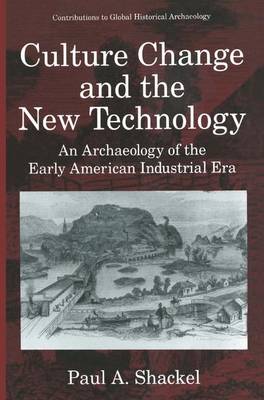Contributions to Global Historical Archaeology
2 total works
Archaeology can either bolster memory and tradition, or contradict the status quo and provide an alternative view of the past. An archaeology of Harpers Ferry's wartime and Victorian eras confronts time-honored historical interpretations of the past (created and perpetuated by such interest groups as historians and the National Park Service) and in so doing allows us to be more inclusive of the town's forgotten histories and provides alternative voices to a past.
Harpers Ferry was one of America's earliest and most significant industrial communities - serving as an excellent example of the changing patterns of human relations that led to dramatic progress in work life and in domestic relations in modern times. In this well-illustrated book, Paul A. Shackel investigates the historical archaeology of Harpers Ferry, revealing the culture change and influence of new technology on workers and their families. He focuses on the contributions of laborers, craftsmen, and other subordinate groups to industrial progress, and examines ethnic and interracial development in an economy that was transformed from craft-based to industrial.

